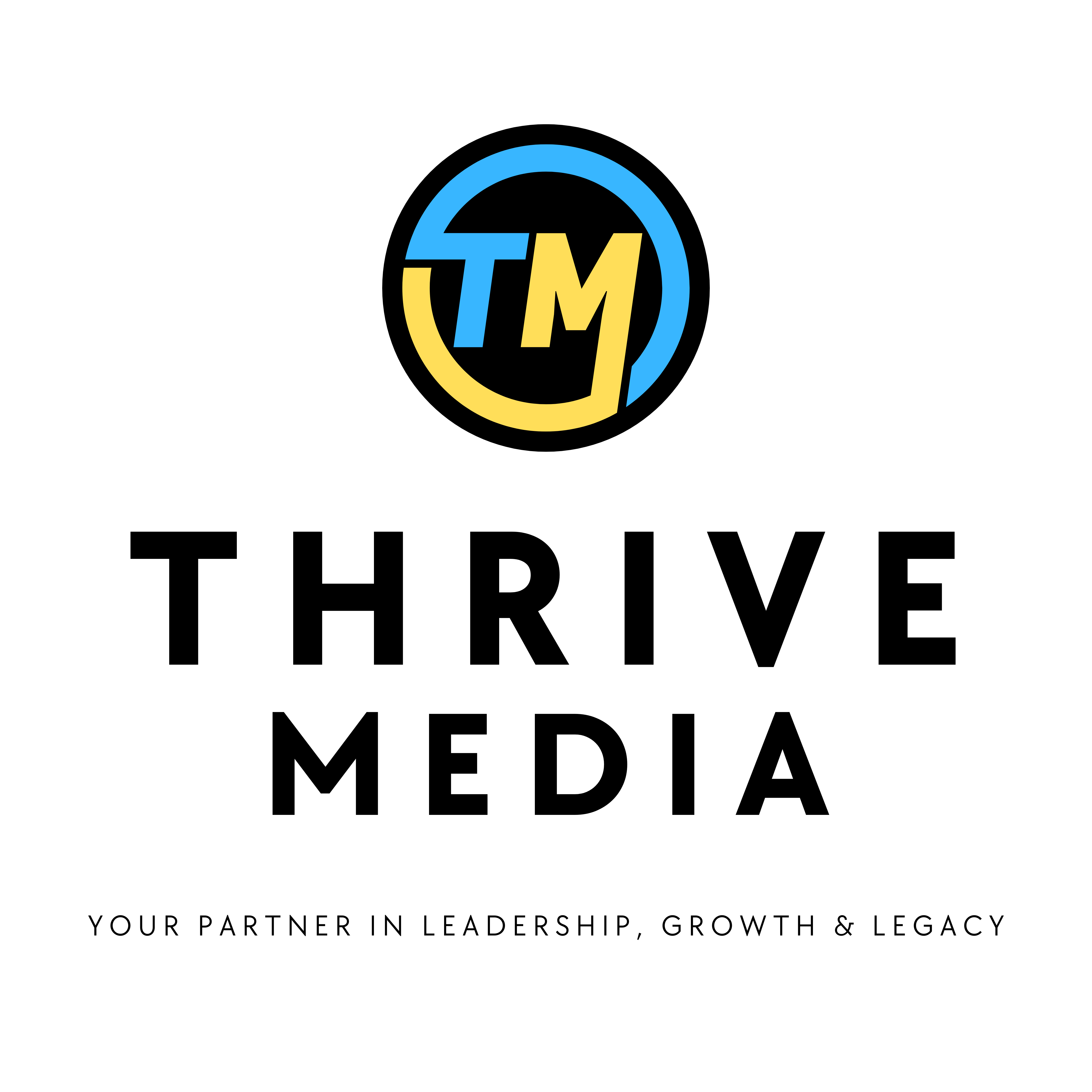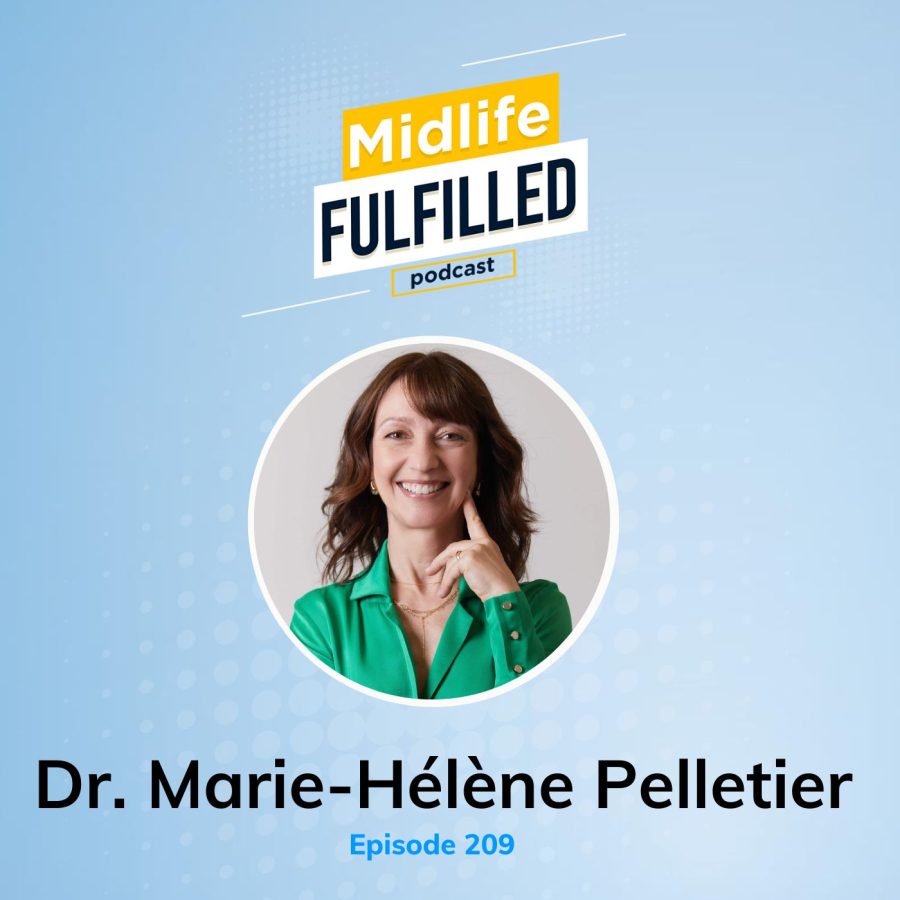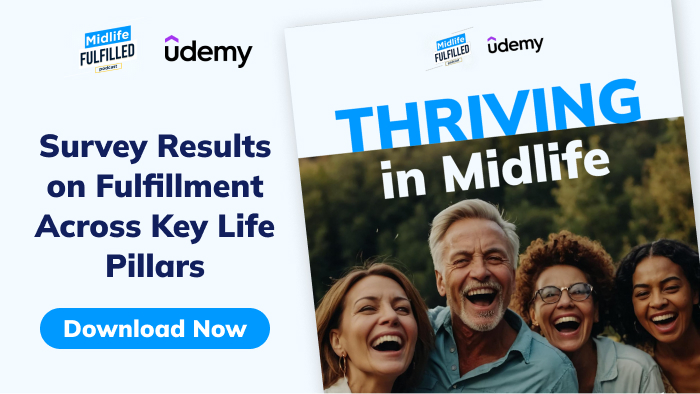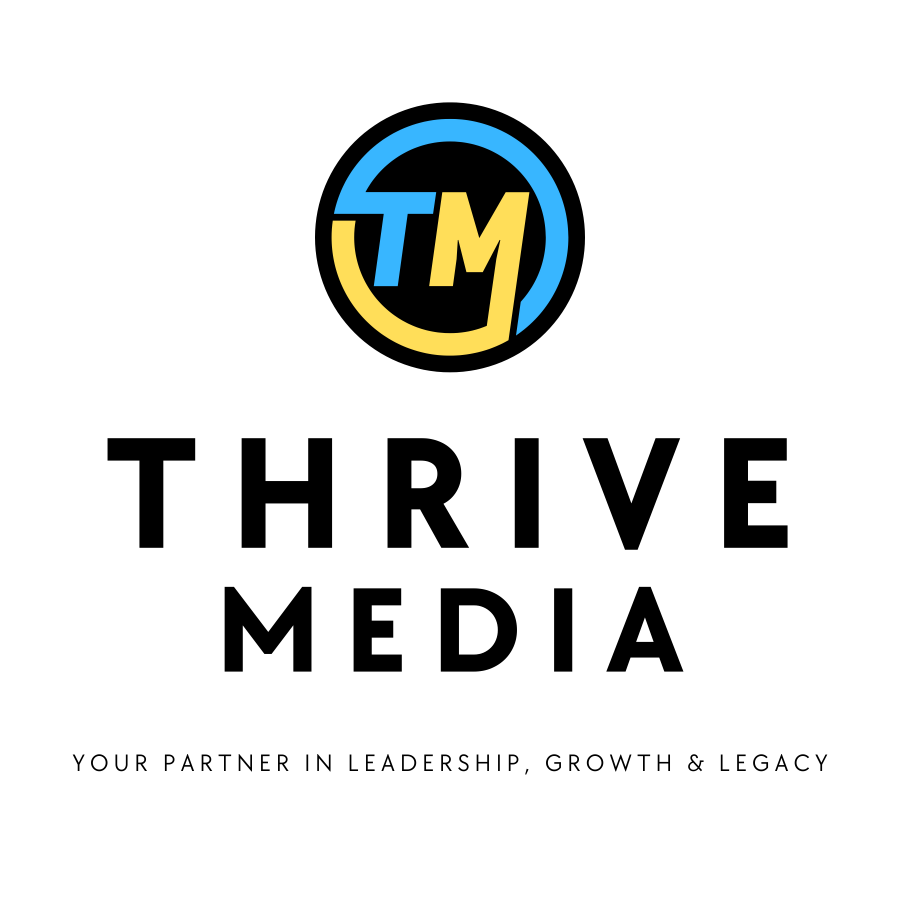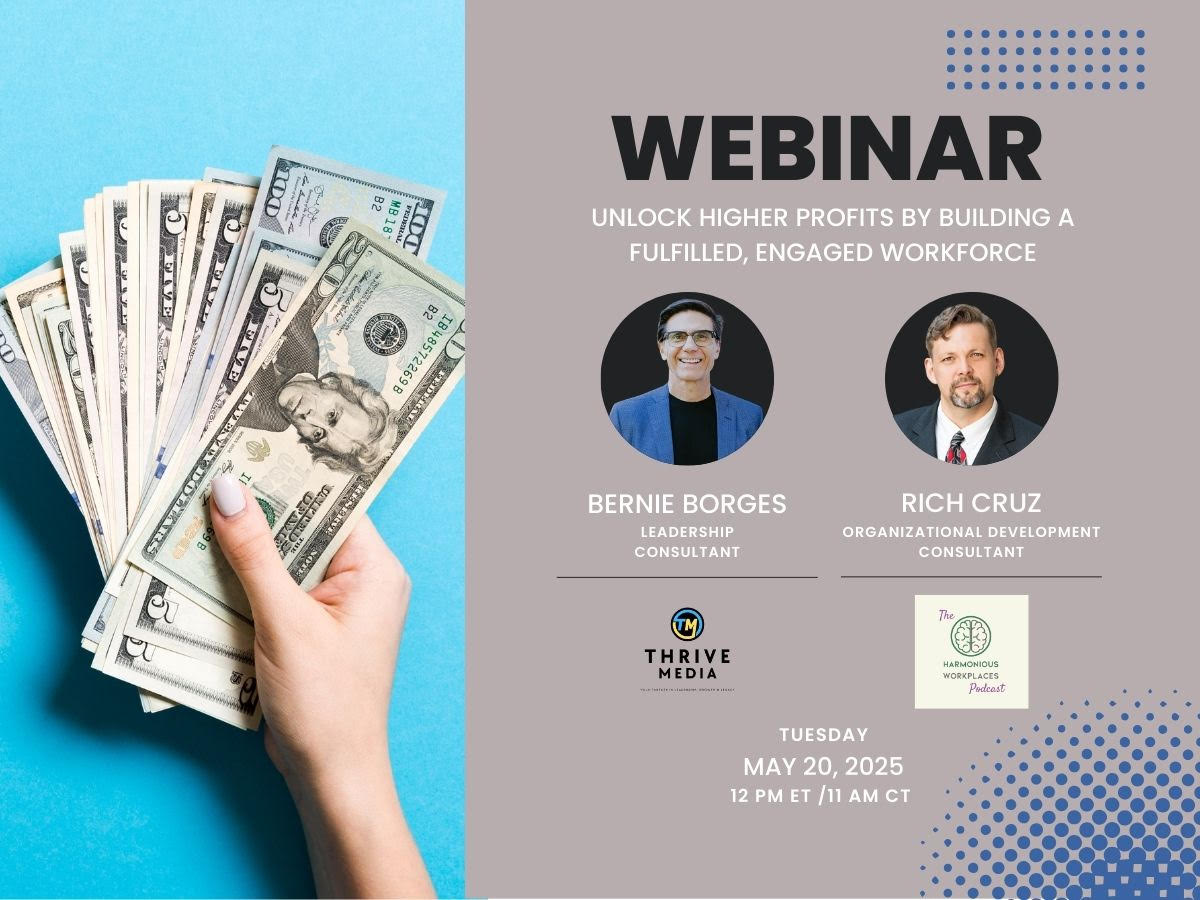Bernie Borges [00:00:00]:
Doctor Marie Helene Pelletier, welcome to the Midlife Fulfill podcast, a maximum episode.
Dr Marie-Hélène Pelletier [00:00:09]:
Thank you, Bernie. And please call me MH.
Bernie Borges [00:00:12]:
MH, it is. Absolutely. Thank you. Well, actually, you are known as m h. And I think you say somewhere on your website that that’s kind of a handy reference for mental health, which is a big part of your world. And so I wanna give a little introduction for my listener. You have this signature mix of business and psychology. You have both a PhD and an MBA.
Bernie Borges [00:00:34]:
That that is very impressive. And, MH, what you do is you translate psychology research into strategies for professionals and leaders and their teams so that they can thrive. And you know I’m all about thriving. And you share essentially what psychologists know, but a lot of other professionals and leaders may not know. And specifically, that is the intersection of high performance and strong workplace mental health. I love that. You have an impressive body of work, over 20 years of experience as a leadership psychologist, executive coach, and a senior leader in corporate insurance and governance sectors, and you have an award winning book, The Resilience Plan, a Strategic Approach to Optimizing Your Work Performance and Mental Health. In fact, it was named a top five book to read by both Inc.
Bernie Borges [00:01:27]:
Magazine and Forbes. So, MH, I invited you on the podcast to really dive into this topic of resilience, the meaning of resilience. And specifically, as you know, I wanna discuss it across the key the 5 key life pillars. But before we get into that, I I just have to know because I am curious. A PhD and an MBA, that is very impressive. Why? Why did you pursue both of those degrees?
Dr Marie-Hélène Pelletier [00:01:53]:
Well, I know. Right? Why would anyone do that? For me, it it it, it was not planned out this way at all. Plus, usually, when you’ve done that first thing that I did, the PhD, you’re usually done with school and all after that. But for me, what happened, it’s just the circumstances. The research I happened to do, and this is now 20 years ago, but I was doing, a study looking at the efficiency, possible efficiency of doing psychotherapy via video conferencing, which at the time I had to explain every single time we could not use the Internet, was not fast enough. I had to use 6 telephone lines to transmit phone and video data, audio and video. It was a big deal. No one thought why would anyone ever do this, the whole thing.
Dr Marie-Hélène Pelletier [00:02:36]:
And, but point with all this is that I had to do a lot of management. I had to obtain a lot of funding to have that technology. I had to work with a team that had to stay stable with me over the course of 1 year without being paid. It’s a lot of management of people. And so it just gave me a taste of management, which then after my PhD, I went back to my supervisor, and I said, I’m going to lead a recommendation letter. And she said, great, post doc. And I said, no, MBA. And that’s how, I got there.
Bernie Borges [00:03:10]:
Wow. Okay. Very impressive. A lot of work. Very that that shows a very strong commitment to your craft. So congratulations, and thank you for the inspiration. So let’s get into it, MH. Resilience.
Bernie Borges [00:03:23]:
Your book is called The Resilience Plan. I’m just gonna ask you to begin with the definite your definition of resilience and and why it matters.
Dr Marie-Hélène Pelletier [00:03:32]:
It is a very important question and understandable question, because there are actually many definitions of resilience. Even if we went into the academic literature, one that many are using, and this is the one I’m using as well, is our ability to go through adversity and come out even stronger. So we’re going through challenging, demanding times, and there is a growth element to this. We are learning, coming out, even stronger.
Bernie Borges [00:04:05]:
Interesting. Okay. Now you work with people in in the in a corporate environment. Right? Yes. In terms of, coaching, and I know you do a lot of speaking and workshops and and again, the executive coaching. So so for you, this resilience platform of yours is really focused on helping people’s people in a corporate environment be resilient from the for the purpose of thriving. Right? You wanna elaborate on that a little bit?
Dr Marie-Hélène Pelletier [00:04:35]:
Yes. Well, it’s it’s for the purpose of everything. My entry door is the work context, because the people I work with tend to value bringing their best, particularly in their work context. They do also want to bring their best in their personal life. And really, if we’re going to look at improving our resilience, even if it was an exclusive work focus, the reality is that this is all in the same person. It’s still all Bernie. It’s still all me MH, right? Whether it’s personal or professional. So we do need to look at resilience by weaving in the both of them.
Dr Marie-Hélène Pelletier [00:05:12]:
And this is why one of the models I’m using to visually think about it is that DNA, you know, those two strands that are sort of crossing each other and that are connected with almost like rungs on a ladder in some ways. So I say it’s as if those two sides are your work and your personal life. They are together. They are what make you very unique. And the point of the book is, therefore, you need to be strategic. That strategy will be unique to each of us in the context we’re in now.
Bernie Borges [00:05:44]:
And as you work with people, again, in a corporate setting, what are some common threads that you see, MH? What are some common attitudes, maybe, circumstances, challenges, or some other descriptor that I haven’t used that that is something that’s very common that you come across?
Dr Marie-Hélène Pelletier [00:06:05]:
There are many. I would say, So one of the first things we need to think about when we’re thinking about resilience in the context of the workplace is that the workplace is a system. So there is us as individuals, There is the team we’re in, and there is the overall organization that this the team and individual operate in. And so all of these parts of the system are having influences on the resilience of all of the other parts, individual, team, and organization. That is very important, because sometimes the a trap that we could fall in is to assign resilience as something that is exclusively individual, therefore entirely in our hands. And that would not be realistic. You could be doing all the things, 100% of the things, which mostly no one’s able to do. But let’s say, even if we were, if you are in a certain team, in a certain organization, it may not be possible to reach actual really good resilience because there are other parts of the system.
Dr Marie-Hélène Pelletier [00:07:15]:
So the systemic part is very important when we consider even our individual resilience in it. Another consideration that, is an important one is a tendency, for most people to believe that they are inherently resilient. That’s who they are as a person. That’s a personality trait. I’ve demonstrated it many times before. People are telling me I’m resilient, so done. I don’t need to take any action to nourish it because that’s who I am. And that’s a misconception.
Dr Marie-Hélène Pelletier [00:07:52]:
So resilience is not a personality trait. It is a state. And so it will fluctuate during our lives, moments where it’s higher, moments where it’s lower. But the good news with this, of course, is that it means we can influence it. Right? We have some control over this. And that’s true for us. That’s true for people in our teams. And these are some of the parts of the narrative related to resilience in the workplace, particularly, that we want to just keep in mind.
Dr Marie-Hélène Pelletier [00:08:22]:
Okay. This is going on, and and then what do we do with this?
Bernie Borges [00:08:26]:
I’m fascinated by your comment that resilience can fluctuate, during the different seasons that we go through in life. And and that really leads me to my 5 pillars. As you know, I’m aged. My 5 pillars is kinda my my platform here for the Midlife of Full podcast. It’s it’s what my thriving in midlife report is focused on, is how people are living their life through the lens of these 5 pillars, and they are health, fitness, career, relationships, and legacy. And, if you don’t mind, I would love for you to kinda spontaneously here just kinda talk through those 5 pillars in terms of how we can be thinking about resiliency in our life beginning with the the health pillar.
Dr Marie-Hélène Pelletier [00:09:07]:
Yes. Yes. Happy to do that, and they all just naturally connect with so many parts of the research that I’m aware of. I’ve not seen the report yet, but, I know it’s there. It’s available. I will look at it. So on the health side, now there are different definitions of health. Sometimes people will consider health as something that includes many pillars, physical health, mental health, financial health, and then some people will broaden it to include spiritual health and other areas.
Dr Marie-Hélène Pelletier [00:09:35]:
Right? So it, it can go fairly broad from a, research based perspective of resilience. And in my work also with everyone, audiences, individual, in coaching, we know that paying attention to our health, and even if we think of it as physical health, the same actions we need to implement for our psychological health. And we’ve heard, in, you know, if for psychological health, the actions that need to be focused on first, especially during the pandemic, they’re still true and they look simple. Their challenge is not in how complex they are. It’s in the implementation. But 4 of the key variables, if we were looking at the health aspect of resilience, would be first, movement or exercise, which include 3 subcategory, cardio strength training and meditative type activity, like yoga, Tai Chi meditation, things like that. The second, nutrition. And mostly what you’re after here is how colored, how colorful is your plate? You’re going for color.
Dr Marie-Hélène Pelletier [00:10:49]:
3rd is sleep, and we do want 7 to 8 hours. And the 4th are our relationships, which in your model is extracted out as a pillar itself, which I love. I really love this because in the absence of extracting it out, people will fold it under health and Right. It loses its importance. It’s as if people say, well, you know, it’s friends and, you know, they’ll always be there. No, no, no. Yes. They are friends and you need these contacts with them on a regular basis.
Dr Marie-Hélène Pelletier [00:11:21]:
So I love that you took it out. We’ll come back to this. So these are some of the elements. There are others as well. But, for now, to start our conversation on that pillar, that’s what I would bring.
Bernie Borges [00:11:31]:
Yeah. Okay. Great. Thank you. So I’d like to elaborate on why I break fitness out into its own pillar because as you’ve alluded to, it is very closely tied to health. And you also said that health is very multi dimensional. I mostly when I talk about health, I mostly talk about physical and mental health, simply because that’s big enough. Right.
Bernie Borges [00:11:57]:
It’s it’s it’s humongous.
Dr Marie-Hélène Pelletier [00:11:59]:
It is.
Bernie Borges [00:11:59]:
Yeah. And remember, I’m focused on the, quote unquote, midlife community, which I loosely define I say loosely, but it is true. Over over age 40. I’m generally speaking of people over the age of 40. So again, when I think of health, mental, and physical, that’s a big enough bucket. When we’re over 40, you know, we’ve had enough decades to be thinking about our physical health and our mental health. And the reason coming back, the reason that I break fitness out into its own pillar is because when we get to the over 40 stage of life, we’re not gonna compete in the Olympics, MH. We need to be fit to be functional.
Bernie Borges [00:12:37]:
We need to be fit to keep our bones strong, and we need to be fit to contribute to our longevity. And, you know, I I I was at the gym this past weekend, and I don’t know if it was coincidence or what, but I think I saw maybe 3 people under the age of 40 and most people over the age of 50 and 60. And I love that, because we’re there, because I’m in my sixties and I was there. We’re there to keep our bones strong, to keep our muscles strong, And, yes, it does contribute to our overall health as well, both physical and mental. But that’s why I break fitness out into its own pillar, because it’s it’s a big enough thing in our life that we should give it its own sort of aspect of life to focus on. And I just wanna I’d love to get your reaction to that from your lens as how you look at resilience and all of that.
Dr Marie-Hélène Pelletier [00:13:26]:
Yes. It it has many aspects that, make that decision for you to extract it also in your, in your report, I think very helpful. So, you know, as you’re observing how the the groups that you’re more focused on are above 40. The other thing too that happens for most people in this stage of life is we’re facing more demands. Right? If in earlier stages of adult life and and that’s an interesting piece to also keep in mind, perhaps your audience already does. But sometimes people think of adult development as children, adolescents, and adults. And as you and I know, within adult, many stages of adult development as well. You’re focused on this particular section.
Dr Marie-Hélène Pelletier [00:14:11]:
But I’m saying this because that in part explains what makes us go to the gym more at, you know, that other stage. And it is a good idea because in earlier stages of adult life, there are demands as well. But as you keep going, the demands are multiplying and they’re coming from different sources as well. So there is more. There are more demands. And taking care of your fitness, investing time in your fitness, in addition to all the benefits you’ve already mentioned, also allows us to bring up the amount of supply of energy we have in our lives given that the demands are taking so many of, so much of that energy. So that’s that’s, one part of it. The other thing too is that you get to a point where you realize that as you’re investing more actively in this case in your fitness, that’ll be true for other things you’re investing in, but specifically in your fitness, part of what you’re doing in effect is you are influencing it.
Dr Marie-Hélène Pelletier [00:15:14]:
You’re taking some active control, over it. Not full control. No one has that. But you’re whatever you have control over, you’re exercising it. I didn’t mean
Bernie Borges [00:15:24]:
to say this.
Dr Marie-Hélène Pelletier [00:15:25]:
But, you’re you’re you’re, implementing that control. As you do this, you are increasing your sense of self efficacy, the belief that you can influence this part of your life. And the more we do this about any part of our lives, we are also building the belief that we could influence this in the future, which is optimism, and that we can influence this and other things in the future, and that’s agency. And so the benefits are immense and and build on each other. So, just so many beautiful reasons to invest in our fitness.
Bernie Borges [00:16:01]:
Yeah. Thank you. Let’s talk about career because career is a big pillar. Right? Of the 5 pillars
Dr Marie-Hélène Pelletier [00:16:07]:
Yes.
Bernie Borges [00:16:07]:
Career is a very, very big one. I mean, we spend most of our waking hours and our adult lives in a career scenario. So what what’s your experience? And I know it’s a very broad question. So take it what in whatever direction you’d like to take it in, but what’s your experience as it relates to people’s careers? And we go through multiple phases within our career. Sometimes we we transform and reinvent ourselves in new careers in these different, midlife stages that we go through. And so how does resilience come into play when it comes to navigating our career over the span of our adult years?
Dr Marie-Hélène Pelletier [00:16:44]:
And you’re right. I think we could just stay on that particular topic, you and I, for for a while. So as it relates to resilience, a couple of things come to mind. One is, again, in the development of our career entering our adult life, that stage of 40 and over brings for some people more challenges. That may be the first time you’re getting laid off. It brings some opportunities because you got to a point where you’ve built a good pool of knowledge and experience that you can use in different ways. And whether you’re an individual contributor or in a leadership role, whatever you’re doing here is more complex than what you were doing when you just started. So from a resilience perspective, even if all of this is exciting and exactly what you want and what you love, let’s say, the ideal scenario, we still want to recognize that this is demanding energy, more energy than it was before.
Dr Marie-Hélène Pelletier [00:17:46]:
And also more given that, yes, our overall body and brain is not what it was 20 years prior. Normal. No problem there, but just normal. And so from all of these perspectives, and then our context will be changing because people around us are changing. If we’re we have dependents, they’re also reaching different stages of life. Supporting them means something different for us. And so many other pieces can be shifting and representing demands. Again, keeping in mind, some may be demands you wish you didn’t have, but some may be very positive and they still represent demands.
Dr Marie-Hélène Pelletier [00:18:24]:
So as we are navigating these phases, we want to have visibility on these demands so that we can therefore have a realistic plan on how do we increase our supply as well. So the other thing too, is that part of what allows us to be as thriving as, as possible is it also includes elements like our sense of mattering, our sense of belonging, the meaning that we see in the work we do. So these considerations also, come forward perhaps in a stronger way now than they did say 20 years ago in our careers. And so or just differently, maybe equally, but just differently because of, yes, there is some stability in our values. So what brought us there potentially, but there’s also an evolution in how much certain values take the center stage for us. And so that also becomes an important factor. And in part why I think it’s a great idea to give it a pillar for you in your report, because if we don’t carve it out, we could get to this stage thinking, well, I’ve been doing this for those, whatever, 20 years, and I’ll just continue to do this. That’s it.
Dr Marie-Hélène Pelletier [00:19:46]:
And now it’s a great time to still continue to look at what’s working, what I have an opportunity to do differently, and start making a plan.
Bernie Borges [00:19:56]:
There’s so much you said there, I mentioned. There’s a few things I wanna come back to because I’ve been filing them away in my head as I was listening to, to you, comment on that. You said things like be self aware. I’m not sure that you used that word, but like be self aware of where you are now and what your values are. This is the what I interpreted it, like be self aware of your values. And I love that. I talk about that because we do go through an evolution of values as we age, as we go through life. Yeah.
Bernie Borges [00:20:28]:
I’m not talking about core fundamental values that we’re taught as children, but the things that we value in our life can evolve over the decades. So as our values are evolving, we need to be self aware of that because, to your example, we could be in a career for 20 years, but maybe our values have changed that are not no no longer aligned with the career that we’ve been in for 20 years. And then you wake up one day, and you you feel like, I I’m not fulfilled. I’m not fulfilled. Why? Why? Why? And the reason is because your values have changed, but your career hasn’t, or some other aspect in one of the other pillars, but we’re talking about career. So I can really see how your resistant resilience model rather, not resistance, resilience model, really can help someone and help an organization really kind of wrap their arms around that challenge because it is a very common challenge. And I’m sure you see it all the time. Right?
Dr Marie-Hélène Pelletier [00:21:24]:
Yes. And, the other piece too that you’re coming now is also making me think about is that recognition. So you’re right. Yes. Core values tend to be more stable. Other values may change, evolve, take the forefront, over time. And we want to listen to this. And in some ways, that also means yes, being self aware Because, really, the same way we’re making decisions about the work by knowing a lot about the situation, for example, and then figuring out what’s best, same thing here.
Dr Marie-Hélène Pelletier [00:21:56]:
If we’re wanting to be even more resilient, we want to start from having even more clarity about where are my values at now. And the other piece that you were describing reminded me of in terms of, yes, what I see also is not only the importance of taking this moment to reflect on where am I at now as opposed to, say, where I was 20 years ago, but it’s also where am I at now and being aware of where the, what I’ll call the dominant discourse is around me. Sometimes people will find themselves in their forties, fifties into, either an even more senior individual contributor role or in a leadership role. And they may have done leadership, say whatever for the past 10, 15, 20, whatever years. And it may have been what they worked towards so hard for a strong period of time. And also something that society values their friends value. It’s a promotion. You’re a higher level.
Dr Marie-Hélène Pelletier [00:23:00]:
You have a higher everything. Okay. And sometimes that doesn’t matter what if I step back and right now, okay. I hear all this recognition, how valued this is by everyone. And no one around me may be saying, but have you thought of it? Is it really what you want? You know, We need to give that space to ourselves to create that space of sometimes it’s a liminal space so that we can actually be in that ambiguity of, okay, hear all this. I also need to listen to myself. I hear the disconnect, and maybe I need to sit with this a bit longer to see how I want to emerge out of this. That’s often how sometimes people will work with people like yourself and others to help them think through this.
Dr Marie-Hélène Pelletier [00:23:53]:
But sometimes it happens on their own or just in conversations with others or in their own journaling or writing one way or the other. It’s so important to take that step back so that we’re not just buying into the society values or the culture around us values, but and we can be aware of that. That’s great. And be then going back to yours.
Bernie Borges [00:24:17]:
One thing you said that I I wanna remark on, and then I’ll ask you for a closing thought. And that you reminded me of something that I’ve come across recently. When I came across this, it was this gigantic light bulb that went off for me. And that is that we all need a coach. Coaches need a coach. Teachers need a coach. Executives need a coach. Leaders need a coach.
Bernie Borges [00:24:44]:
Consultants need a coach. And the reason is we are usually the biggest obstacle to ourselves. And without the benefit of someone with the right perspective, the right lens, and of course, the training and the credentials to really help someone, we are the biggest obstacle to get in the way of really realizing what you said earlier. Just understanding that self awareness, the agency to to be resilient where we need to be resilient in this stage of life. So I’ll leave it there, ask you for a response to that and a closing thought, MH.
Dr Marie-Hélène Pelletier [00:25:25]:
Well, you know, it’s interesting how and, you know, different people will proceed differently, as well. And, but we definitely, if we’re stuck, you know, in, in exploring where we need to go, could everyone benefit from it? Probably. And there is also sometimes a notion of if you’ve done this before, you can sometimes use some of the work you’ve done before to help you, you know, go through that next step. Sometimes you will need a second head. You just need a second head to, to get through, the current place where you’re stuck. But, yeah. Could everyone benefit? Probably. Yes.
Dr Marie-Hélène Pelletier [00:26:03]:
Sometimes it’s a matter of resources and, and all that kind of thing, which is why sometimes I will say, you know what, if it is a phase right now where you don’t have those resources, it it can happen. Then look for alternatives, the same way you would in anything in life. Just don’t stay stuck with, I cannot do this, therefore I do nothing. Okay. If you cannot do this, be curious, look for, okay, who else? Is there a friend? Is there a spiritual leader? Is there a book? Like, is there anything? Is there her podcast? Right? Some of these, there, there could be so many ways that can spark and send you on a different path, but you need to stay active in it. That’s the I would say absolutely critical.
Bernie Borges [00:26:48]:
Absolutely. MH, I could continue this conversation for not only minutes, but hours, but we’re not gonna do that. We’re gonna leave it here. But first, of course, I do wanna invite you to share with my listener how can they learn more about you, your book, and everything you’ve got going on in your world.
Dr Marie-Hélène Pelletier [00:27:05]:
Thank you for asking. Theresilienceplan.com will get you to everything that I do. The book, other things as well. So theresilienceplan.com, it was not taken, believe it or not. So, yeah, I know. So that, otherwise LinkedIn always wonderful. I love to connect with people on LinkedIn, because then I can see also what you’re, what’s on your mind, what you’re thinking about. So, and all the links will be in the show notes.
Dr Marie-Hélène Pelletier [00:27:29]:
We’ll also have in the show notes, a link to, some worksheets that are connected, with my book, if you want to dive a bit more in in some of the things we talked about. And they can be done without the book or with the book, whatever, but, they’ll be there.
Bernie Borges [00:27:44]:
Fantastic. Well, my listener knows that all that will be linked up in the show notes as you point out. MH, thank you so much for joining me on this episode. I call this a maximum episode because we dove deep into a topic that you have expertise in. You clearly have expertise, and I’m honored that you chose to spend some of your time to share some of your expertise with us today.
Dr Marie-Hélène Pelletier [00:28:05]:
Oh, it was an absolute pleasure, Bernie. Thank you.
